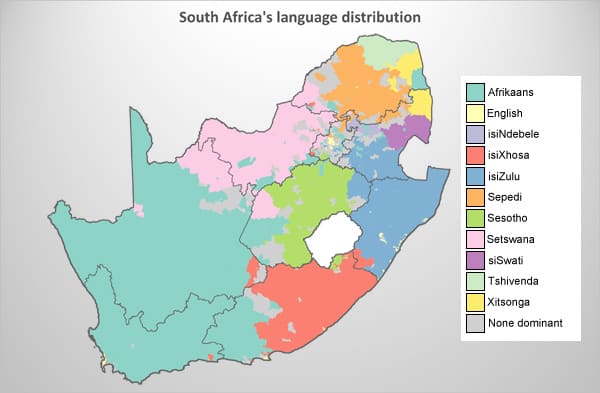Discover various interesting information about What Language Is Spoken In Cape Town South Africa, all of which we’ve summarized from various reliable sources.

What Language is Spoken in Cape Town, South Africa?
Cape Town, the vibrant capital of South Africa’s Western Cape province, is renowned for its diverse and captivating tapestry of cultures and traditions. At the heart of this cultural melting pot lies the question of language, a fascinating exploration that reveals the complexities of South Africa’s history and present-day linguistic landscape.
The most widely spoken language in Cape Town is Afrikaans, a fascinating fusion of Dutch, Portuguese, and indigenous Khoisan languages. This vibrant tongue emerged during the colonial era and has become an essential part of the local identity. With its rhythmic intonation and unique vocabulary, Afrikaans adds a distinctive flavor to the Cape Town experience.
The Many Tongues of Cape Town
While Afrikaans is the dominant language, Cape Town is a multilingual city where various other languages thrive. English, the official language of South Africa, is widely used in business, education, and communication. Xhosa, a melodious and expressive indigenous language, is spoken by many in the province, contributing to the city’s rich linguistic tapestry.
Other languages spoken in Cape Town include Zulu, a prominent language in South Africa, and various dialects of the indigenous Khoisan languages, each possessing its unique sounds and grammar. This linguistic diversity reflects Cape Town’s history as a meeting point of different cultures, where languages have intertwined and evolved over time.
The History and Significance of Afrikaans
The origins of Afrikaans lie in the 17th century, when Dutch settlers arrived in the Cape. The language they spoke, known as Cape Dutch, interacted with the local Khoisan languages and Portuguese, resulting in the emergence of a new and distinct language. Over time, Afrikaans evolved further, with the addition of influences from Malay, German, and English.
Afrikaans became popular among the Afrikaner population, descendants of the Dutch settlers. It played a pivotal role in shaping their identity and culture. In the 20th century, Afrikaans was officially recognized as one of South Africa’s official languages, reflecting its cultural and historical significance.
Trends and Developments in Cape Town’s Linguistic Landscape
In recent years, the linguistic landscape of Cape Town has continued to evolve. English has gained prominence as the language of business and international communication, while Afrikaans remains strong in many communities. The growth of tourism and immigration has introduced new languages to the city, enriching its linguistic tapestry.
Social media and digital platforms have also influenced language use in Cape Town. Young people are increasingly using a mix of English and Afrikaans, known as “Cape Flats slang,” creating a vibrant and dynamic linguistic expression that reflects the city’s youthful energy.
Tips and Expert Advice for Language Learners
If you’re interested in learning a language spoken in Cape Town, consider these tips and expert advice:
- Immerse yourself: Surround yourself with the language by watching movies, listening to music, and engaging in conversations.
- Practice makes perfect: Regular practice is essential for developing fluency. Find opportunities to speak and listen to the language.
- Use technology: Language learning apps and online resources can provide valuable support and practice.
- Find a language partner: Partnering with a native speaker can enhance your learning experience and provide authentic conversation practice.
- Be patient and persistent: Language learning takes time and effort. Stay motivated and celebrate your progress along the way.
FAQ on Languages Spoken in Cape Town
Q: Is Afrikaans the only language spoken in Cape Town?
A: No, while Afrikaans is the most widely spoken language, Cape Town is a multilingual city with English, Xhosa, Zulu, and various indigenous Khoisan languages also spoken.
Q: What is the significance of Afrikaans in Cape Town?
A: Afrikaans is a vital part of the local identity, having played a key role in shaping the culture and history of the Afrikaner population.
Q: Are there any new language trends in Cape Town?
A: Young people are increasingly using a mix of English and Afrikaans, known as “Cape Flats slang,” creating a vibrant and youthful linguistic expression.
Conclusion
The linguistic landscape of Cape Town is a captivating symphony of languages, each contributing to the city’s unique character and charm. From the soulful echoes of Afrikaans to the vibrant rhythms of Xhosa and the global reach of English, Cape Town’s languages are a testament to its rich history, diverse population, and vibrant cultural spirit. As the city continues to evolve, so too will its linguistic tapestry, reflecting the ever-changing dynamics of a cosmopolitan metropolis.
Are you interested in exploring the linguistic diversity of Cape Town? Share your thoughts and experiences in the comments below.

Image: www.amren.com
An article about What Language Is Spoken In Cape Town South Africa has been read by you. Thank you for visiting our website, and we hope this article is beneficial.